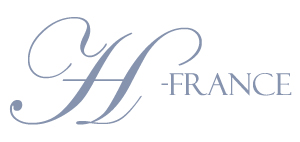Response Page
The following responses were posted on the H-France discussion list in response to Alec G. Hargreaves’s review of John R. Bowen, Why the French Don’t Like Headscarves: Islam, the State and Public Space. H-France Review Vol. 7 (March 2007), No. 28 The original review may be found on the H-France web page, here.
__________________________________
Date: Wednesday, March 28, 2007 8:29 AM
Norman Ravitch
ravitchn@bellsouth.net
The real issue is ignored in this review, and I guess probably in the book in question. It is: what limits to religious liberty (and by extention, other sorts of liberty) are legitimate? The rise of Islamic fundamentalism may only be the immediate cause, not the fundamental cause, of the problem. Religious liberty has been used to defend a variety of policies and practices in the United States which may be dangerous for liberty in the more general sense. Should there be no limits on religious _expression_? What about plural wives and husbands? The use of illegal drugs for allegedly religious purposes. Practices which violate public health? Religious coverings for generally dangerous political movements and programs? The time may come when religious liberty may have to give way to considerations of the general welfare. It happened during the French Revolution; it happened (at least in the minds of rellgious partisans) during the Reformation era. The rise of Islam -- a religion which returns our minds back at least 1600 years to the Dark Ages -- returns us also to old problems and dilemmas.
Date: Wednesday, March 28, 2007 11:09 AM
Erika Kurt
erikakurt@yahoo.com
While Mr. Ravitch poses an interesting question, the review clearly points out that there is no need to pose this question on the headscarf debate (while it is interesting to pose it in other contexts). In order to place a particular limit on a religious liberty, there should be other real concerns (and some form of proof or study into these concerns) that are weighed against the particular liberty. Then, the limit should be narrowly tailored to deal with the identified concern. The danger with generally deciding that legitimate limits on religious _expression_ exist is that it causes people to impose limits without going through the process of proving various real dangers and weighing them against the particular freedom. While skipping this process might make sense for short periods of time when there is no time to perform an adequate study and prove the allegations/concerns, the headscarf debate did not have this sort of urgency. Unfortunately, the process of demonstrating concerns and weighing them was skipped during legislative debate as it was skipped for the vast majority of provisions contained in the US PATRIOT Act.
__________________________________
Date: Wednesday, March 28, 2007 11:11 AM
James D Le Sueur
jlesueur@unlnotes.unl.edu
This response strikes me offensive. While I'm by no means a defender of Islamists, to suggest that rise of Islam (which is itself an odd thing for a scholar to assert, as Islam has been a world religion for a long time now, hasn't it?) brings us back to the dark ages seems far too little too emotional, if not just down right offensive and ahistorical. This comment reminds me of how the extreme right used to talk (and frankly still does) about Muslims during and after decolonization.
__________________________________
